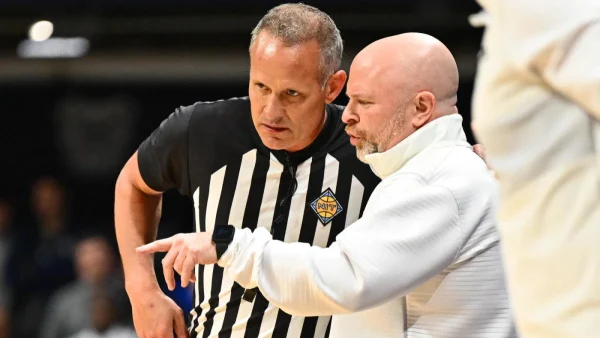A Boycott of Olympic Proportions
On Monday, Dec. 6, the White House announced that no diplomatic leaders will be present at the Beijing 2022 Olympic games. United States Olympic athletes, however, are still permitted and encouraged to attend and perform at the games. It is common for attending countries to send diplomatic convoys to the Olympics, as in some cases, diplomatic opportunities and international rapport might be exactly what the world needs. Nevertheless, the political leaders of the United States have decided that silence will speak louder than any conversation that could be had at the Games.
The United States’ decision is prompted by the current atmosphere in China, highlighted by the ongoing human rights crises in Xinjiang. Xinjiang has been the site of religious persecution for Uyghur Muslims. In order to silence concerns about these practices, the government took steps in surveillance and censoring those being persecuted. The decision of the United States was also propelled by the recent circumstances preceding the disappearance of tennis star Peng Shuai.
Often seen as an opportunity for international unity, the Olympic Games have historically been one of the only fields with the greatest number of international participants where the citizens of represented countries are not meeting in war. The Games have gone through some of the most prominent moments in global history.
The political decision has yet to be criticized as it has been met with bipartisan support; a unique circumstance in modern American politics. In 1936, the United States attended the Olympic Games in Berlin, hosted by peak Nazi Germany. The U.S.’s attendance at the games came without contingency. In fact, it was clear that Germany’s goal in hosting the Olympics was to demonstrate its national pride and power. When Germany began preparation for the Olympics, they expelled all Jewish individuals from their national sports teams, which was a cause for concern for the United States and several other countries. Upon threatening to boycott the Games, Germany relented and reinstalled any Jews they had previously disgraced. Ultimately, the United States would send their best athletes which notoriously included Jesse Owens and John Woodhall. Much to Hitler’s dismay, both Black men would best their competitors. Despite the controversies, the 1936 Games installed the Olympic torch relay—a tradition that has bookended every Games since.
The 1936 Games seem especially relevant with Monday morning’s White House press release. On Dec. 6, White House Speaker Jen Psaki expressed that the United States would be diplomatically boycotting due to, “…the PRC’s [People’s Republic of China] egregious human rights abuses and atrocities in Xinjiang,” which marks the very same basis on which many criticize the United States’ attendance of the 1936 Games.
This boycott is not the United States’ first. In 1980, the United States instituted a proper boycott of the Moscow Olympic Games. President Carter called for the boycott in retaliation for the Soviet Union’s invasion of Afghanistan in 1979. In a show of solidarity, 60 other countries boycotted the Olympics after the United States’ ruling, which resulted in the fewest represented countries since 1956. The United States threatened athletes who attempted to attend with possible passport revocation. In response to the boycott, the Soviet Union did not attend the 1984 Los Angeles Olympics. Unfortunately for the Soviet Union, the Los Angeles Olympics resulted in performance success for the United States. The 1984 Games even set a record for participating countries—even without the Soviets and their allies. The decision to not attend the Los Angeles Games in 2028 could be one that China decides to make, just as Russia had in the ‘80s.
This further emphasizes that historically, the United States has little to worry about in their boycott against the PRC. The reason behind the United States deciding to perform a diplomatic boycott rather than a traditionally recognized boycott is due to the notion that it is unfair to punish world-class athletes who have dedicated their careers to training for the Games. The United States Olympic and Paralympic Committees have both stated they will not endorse any political measures that would prevent the participation of U.S. athletes. To China’s credit, they have stated that this bold move is not threatening, as they had yet to officially invite any American diplomats. Additionally, spokesman Zhao Lijian stated that “the Winter Olympic Games is not a stage for political posturing and manipulation,” only further solidifying the fact that China does not stand by the United States’ political demonstration.
Many believe that the Olympics help signal international unity and the ability to interact and compete peacefully. Typically, athletes are accompanied by current political leaders; just this summer, Dr. Jill Biden accompanied American athletes to Tokyo for the Summer Olympics. While the United States has yet to be joined in the boycott by any other allies, officials in the Biden administration felt it was impossible to remain silent due to the ongoing genocide.
In the time leading up to the 2022 Winter Games, interesting developments are to be expected. The Olympics Games are arguably the most important two weeks in sports, and without political interference, there would undoubtedly be historic stories that unfold. Retaliation, allyship and more loaded statements are sure to come in the weeks leading up to the next Games. For now, however, the United States will remain resolute in its decision, as China’s response is awaited.
Your donation will support the student journalists of Saint Louis University. Your contribution will help us cover our annual website hosting costs.











